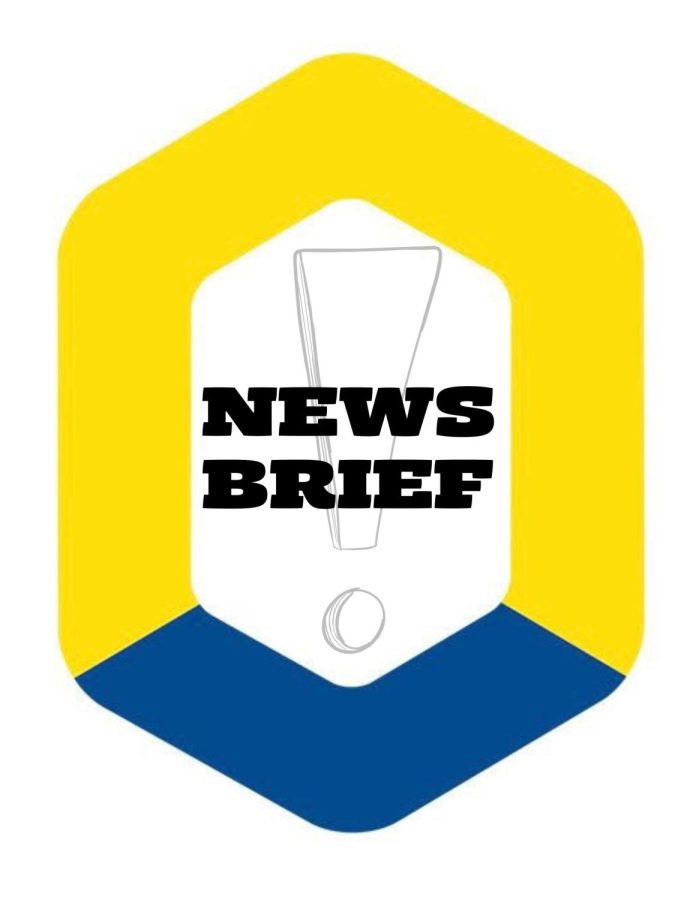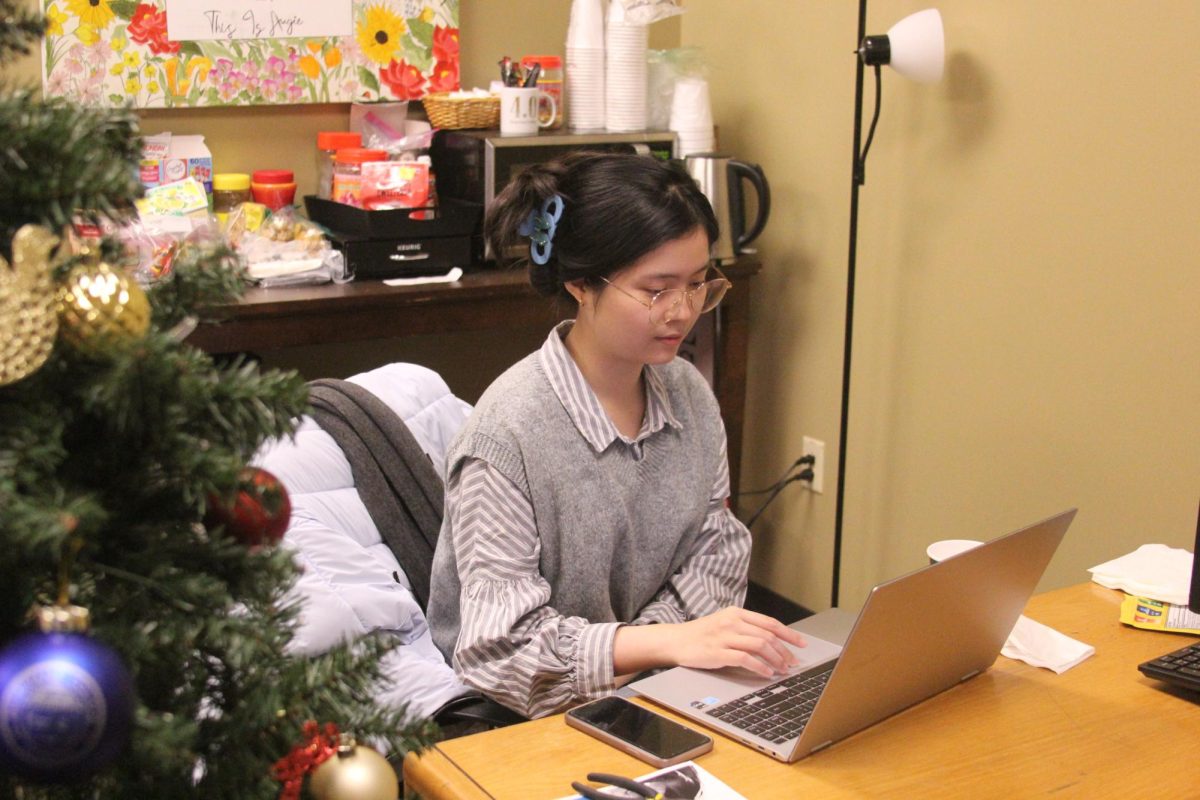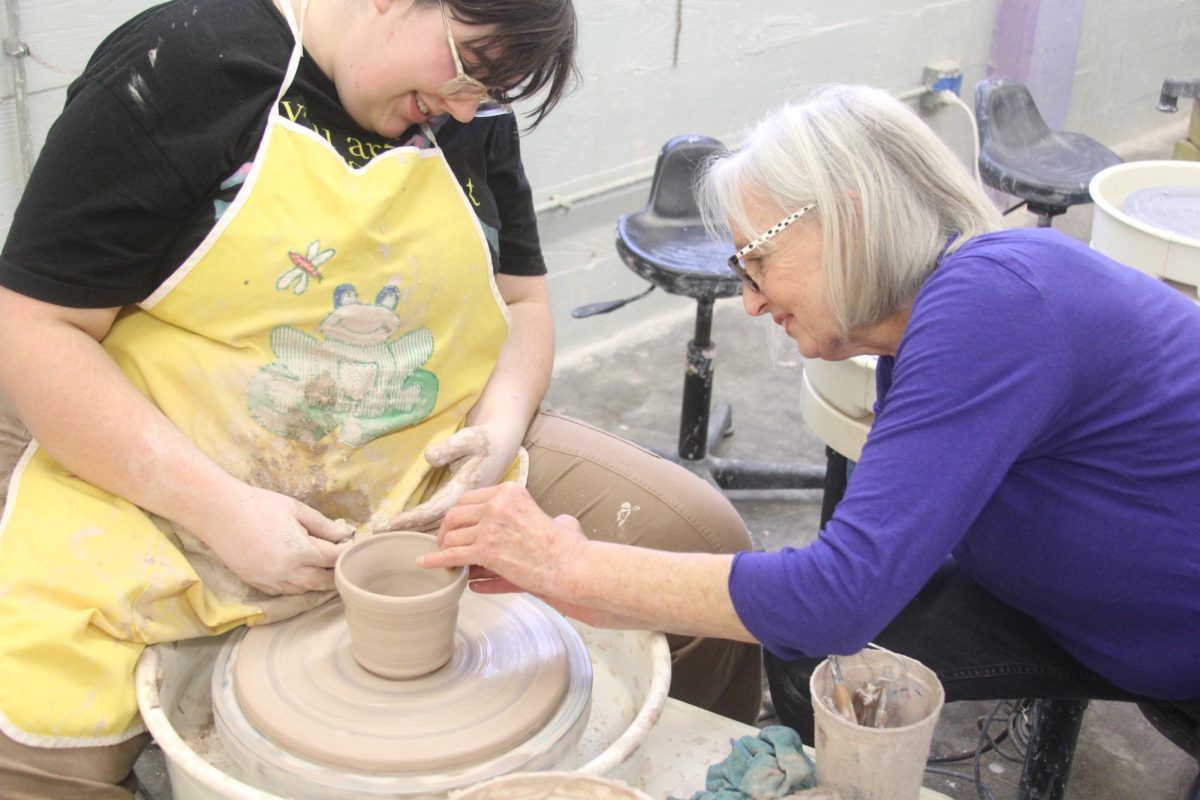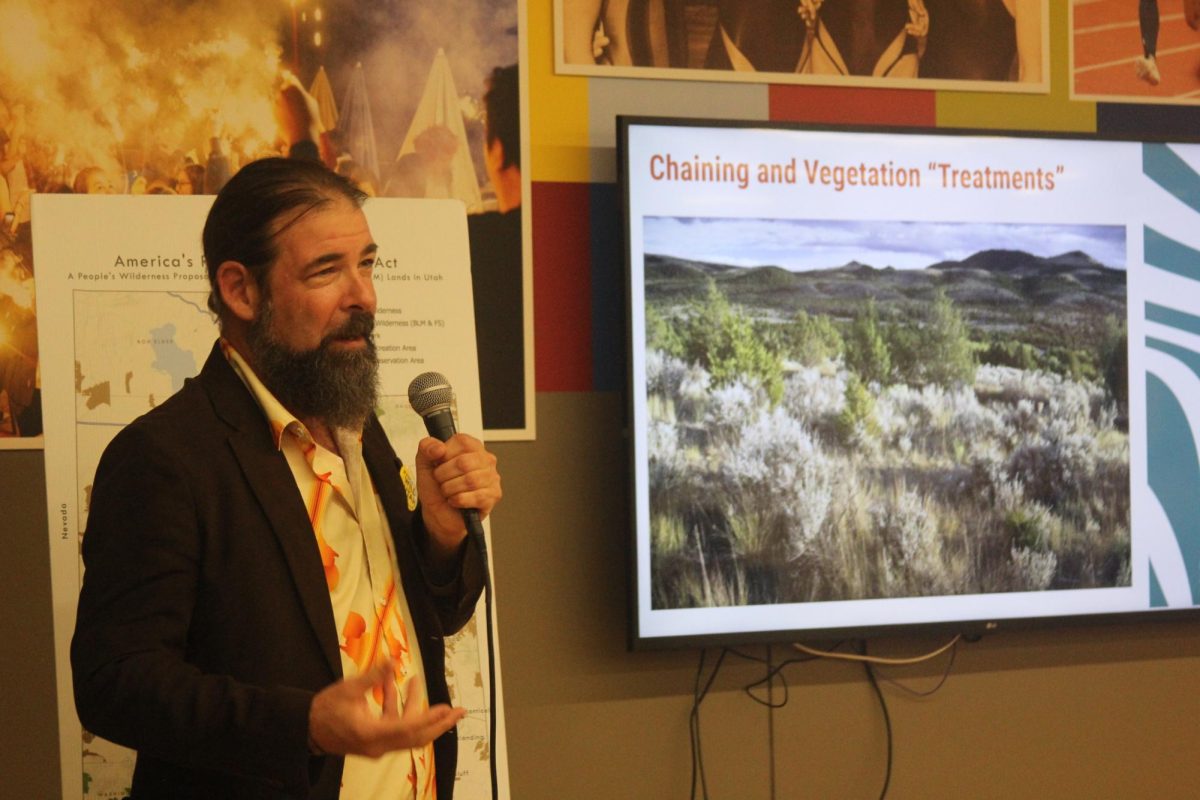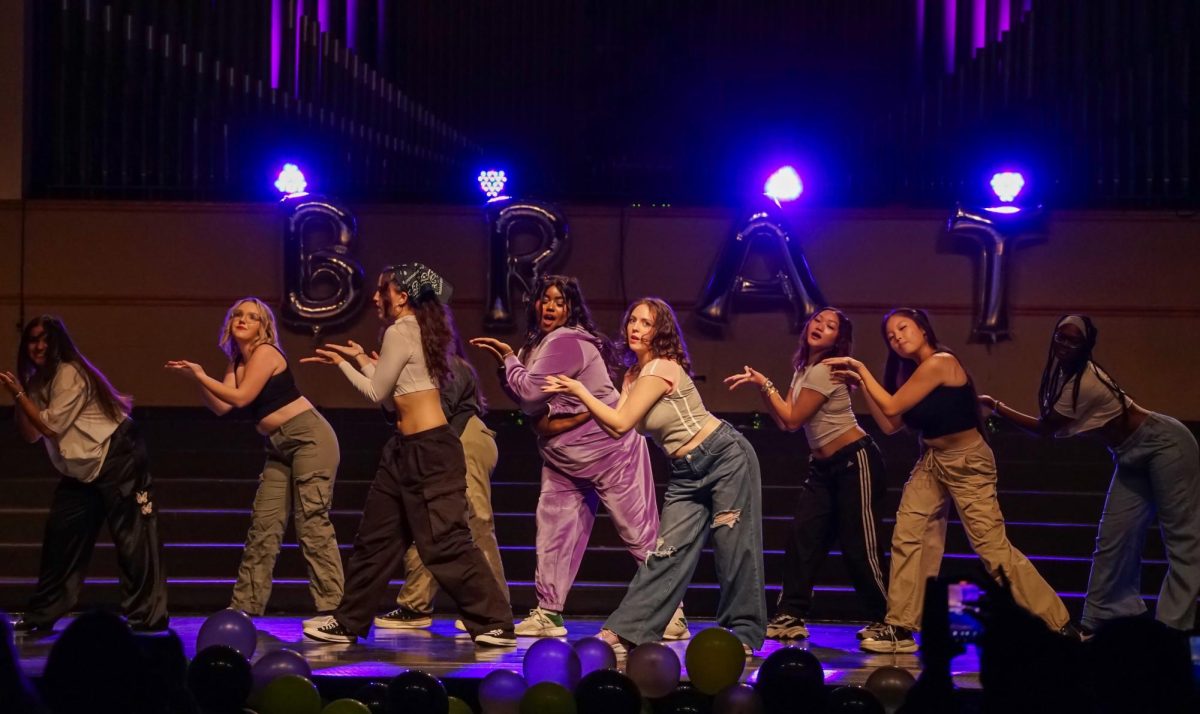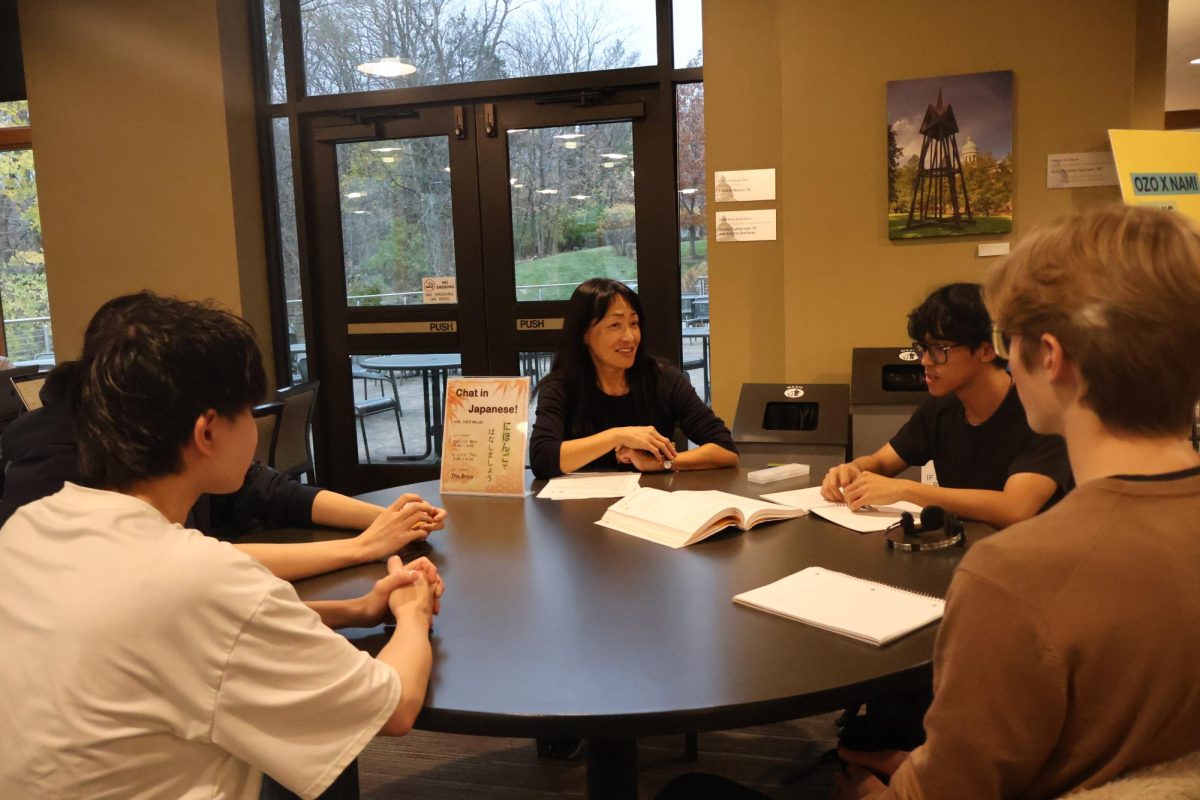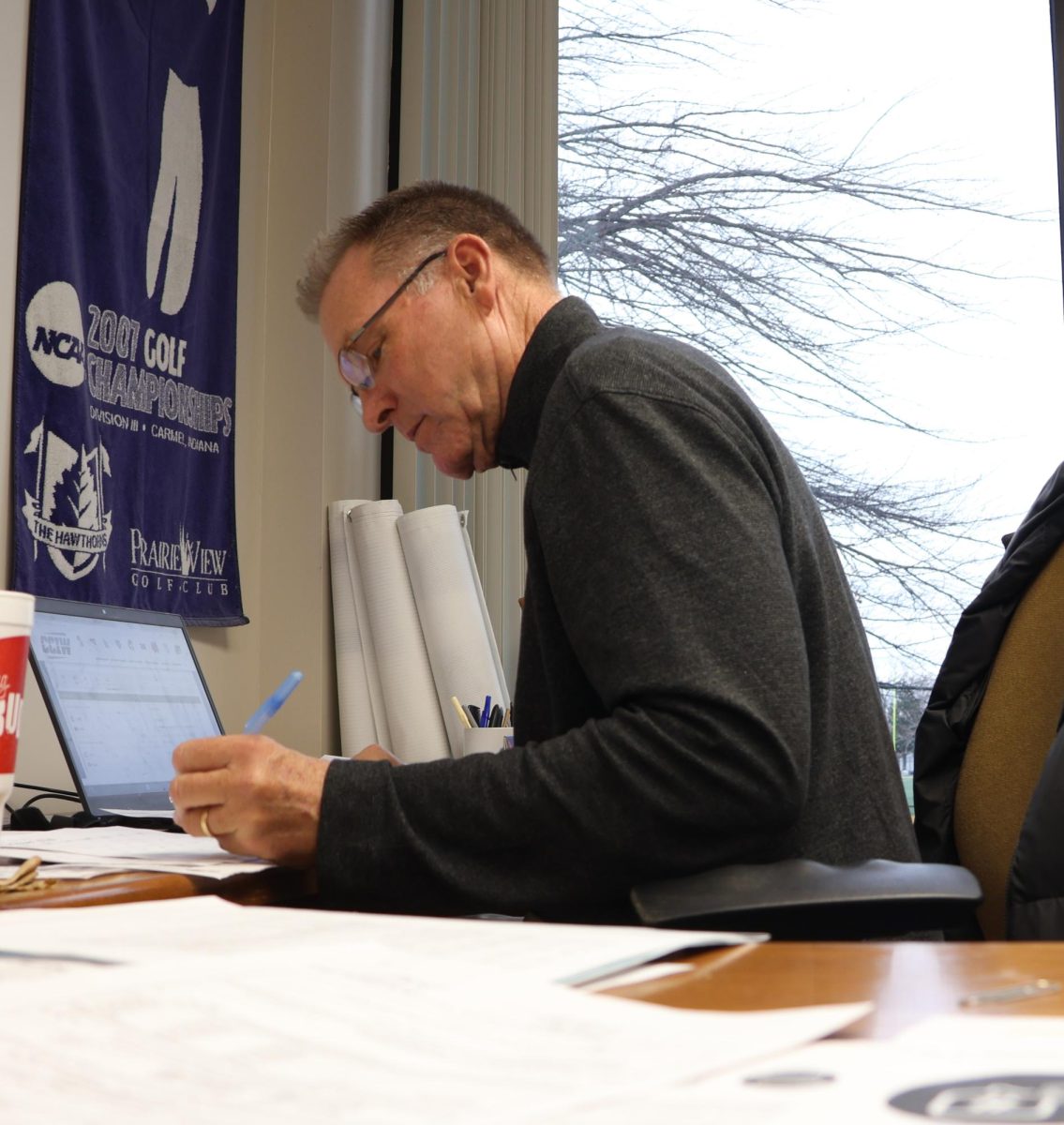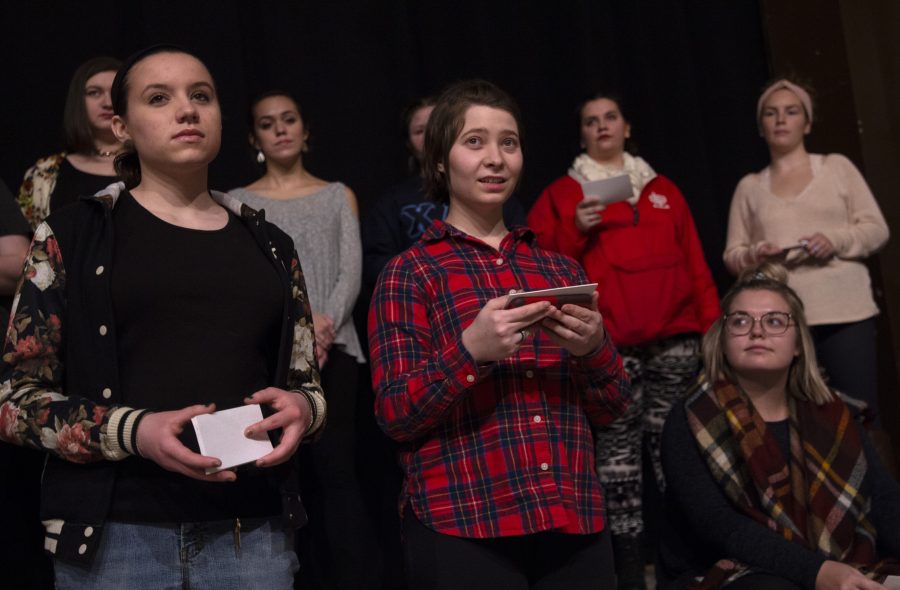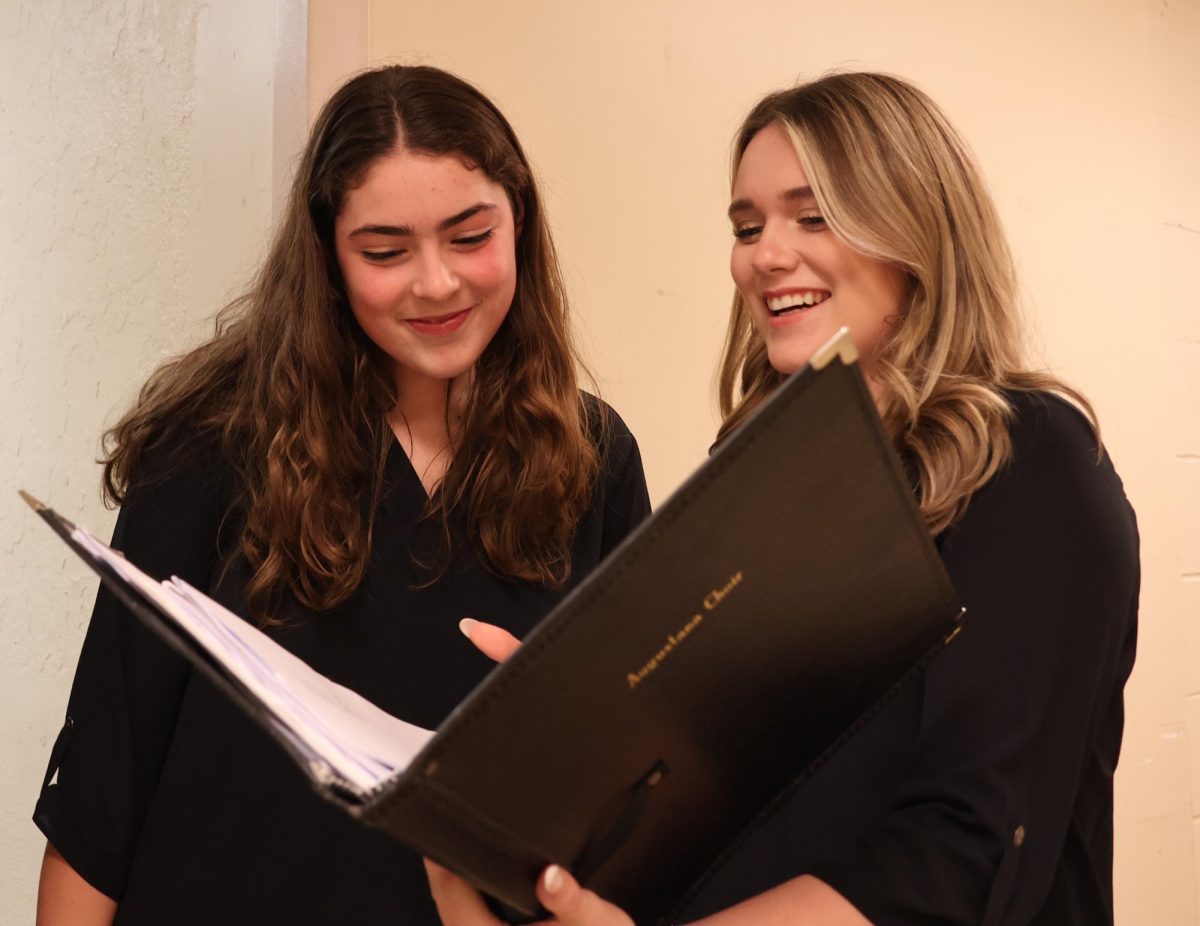Augustana’s production of “The Vagina Monologues” written by Eve Ensler, has inspirational core beliefs about social change and leadership. The program this weekend stated, “One must look at the intersection of race, class, and gender to understand violence against women.”
These core beliefs set the standards high, which Augustana’s performance of “The Vagina Monologues” powerfully did these standards and core beliefs justice.
“The Vagina Monologues” started by catching the audience’s attention with all the actors strutting powerfully on stage with their high heels and red and pink outfits. The unity of these actors corresponding colored outfits, effectively represented how the power of unity between women is necessary.
Immediately there was an aura of empowerment mixed with a bit of light humor as they repeated the phrase – “we were worried about vaginas.” The loudness of the repetition of this phrase precisely portrayed the idea that the issues women face are something needed to be worried and thought about.
Notably, the simplicity of the stage set-up added to the strength and focus of what each actor was conveying. The lack of props, the shining light, and basic nude colored floor design, made the audience have more focus on the powerful words behind each actor’s monologue, which I found to be very cleverly done.
The first monologue was an Augie Spotlight titled “If Knives Were Butterflies” written by assistant professor of French, Kiki Kosnick, and performed by sophomore Sophia Rose.
This first monologue powerfully told the story, from Kiki’s perspective, of a trans woman AID’s activist murdered “randomly” in a hotel room.
Sophia Rose’s portrayal hooked the audience immediately into an emotional whirl as the friend’s repetition of the word – “random” – struck a chord for transgender individuals everywhere. As this word was plastered on multiple media outlets to describe the “motive” behind the trans woman’s death.
The characters anger towards the word “random” powerfully depicted the injustice that trans woman face in society still to this day. More importantly, the actors strong posture and grounded feet on the stage showed just how strong Kosnick felt about the act of violence committed against her friend.
Kosnick’s monologue really set a strong tone for the rest of the production.
Throughout the rest of the production there was a multitude of monologues some being informative, others humorous, some sad. The variety of these underlying tones helped keep the audience entertained, while all still carrying the same message that vaginas are indeed beautiful.
Particularly, “The Flood” illustrated the importance of the normalization of getting wet “down there.”
“The Vagina Workshop” reflected the importance for woman to feel comfortable with their own vagina’s, specifically the clitoris. “They Beat The Girl Out of My Boy… or so They Tried” gave perspective on the unjust bullying transgirls go through as they “break stereotypes.”
Specifically, “My Angry Vagina” was a perfect end right before intermission. It lightly played the humor on the various things the vagina has to put up with from tampons to the expectations to change the vaginas smell to wanting sex and foreplay. Rightfully ending with the statement – “My vagina wants everything.”
Considering all these monologues, they all effectively painted pictures of the struggles and injustice women have always faced in society.
The way each actor put on a believable persona by just each individuals tone and the way they all held themselves on stage, made it clear for the audience to feel emotionally connected with the underlying message behind each different monologue. Already the first half of the show accurately depicted the importance of the need for social change from the injustices each character experienced.
After intermission, the show successfully started powerful again with “My Vagina Was My Village,” vividly illustrating the feeling of violation from being sexually assaulted. Metaphors about the “river of poison and pus” was enough to bring audience members shaken.
“The Little Coochi Snorcher That Could” represented a moving story about experiencing being raped but then finding love for the vagina again through pleasuring one’s self.
“Reclaiming Cunt” was a short but sweet message about reclaiming the word ‘cunt’ after the decades of hatred the word has been associated with to slander women.
“The Woman Who Loved to Make Vaginas Happy” accurately portrayed the story of a women learning to love all kinds of sex from sex with props to playful teasing.
This monologue left every audience member laughing with tears as it ended with the sounds of various types of moans.
During the second half of the show, all of these actors once again were successfully illustrating the beauty of the vagina and the injustice women face for having a vagina.
Some actors had differing accents, which cleverly reflected how women from all parts of the world face similar struggles, not just particular to women in one particular geographic location. In addition, other actors decided to walk around to emphasize specific phrases and the colorful personalities of each character. Meanwhile, other actors sat down on a chair center-stage emphasizing the defeat some women feel or the timidness developed in characters who became scarred from their experiences.
Lastly, the monologues ended with another spotlight titled: “Women’s Incarceration.” The words were powerful; various statistics about women in prison, specifically the rise in women of color in prison was enough to leave people’s jaw’s dropping.
The way multiple actors walked up on stage with their own unique portrayals of anger or sadness created a beautiful picture for the audience. As well as the way all the women in this monologue lined up together once they each finished, helped represent the unity and strength women have. Although, they still could’ve appealed to emotions a bit more to wow the audience more, for the most part this monologue was still definitely a necessary and well played out ending.
With all these powerful monologues and more, Augustana’s production of “The Vagina Monologues” is a must see for all to feel empowered and proud to be a woman. This is especially important for men to better understand the struggles many women face.
After watching the entire production, I can say with confidence that we all indeed should still be “worried about the vagina.”
Featured Image:
Cast members run the opening scene of the Vagina Monologues on Thursday, Feb. 7, 2019 in Brunner Theater. With three performances, three different casts appear on Friday and Saturday. Photo by Thea Gonzales.
Categories:
“The Vagina Monologues” spark empowerment
February 11, 2019
Cast members run the opening scene of the Vagina Monologues on Thursday, Feb. 7, 2019 in Brunner Theater. With three performances, three different casts appear on Friday and Saturday. Photo by Thea Gonzales.
0
More to Discover
